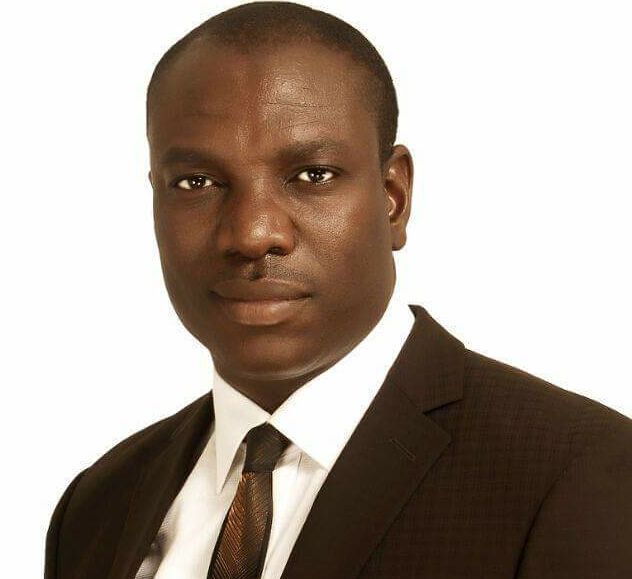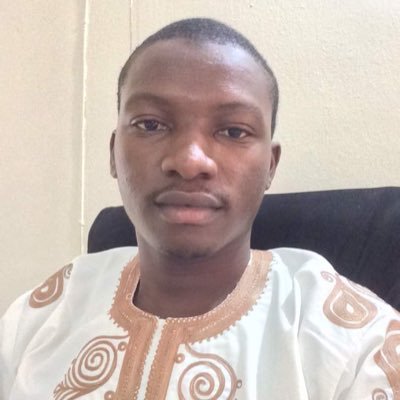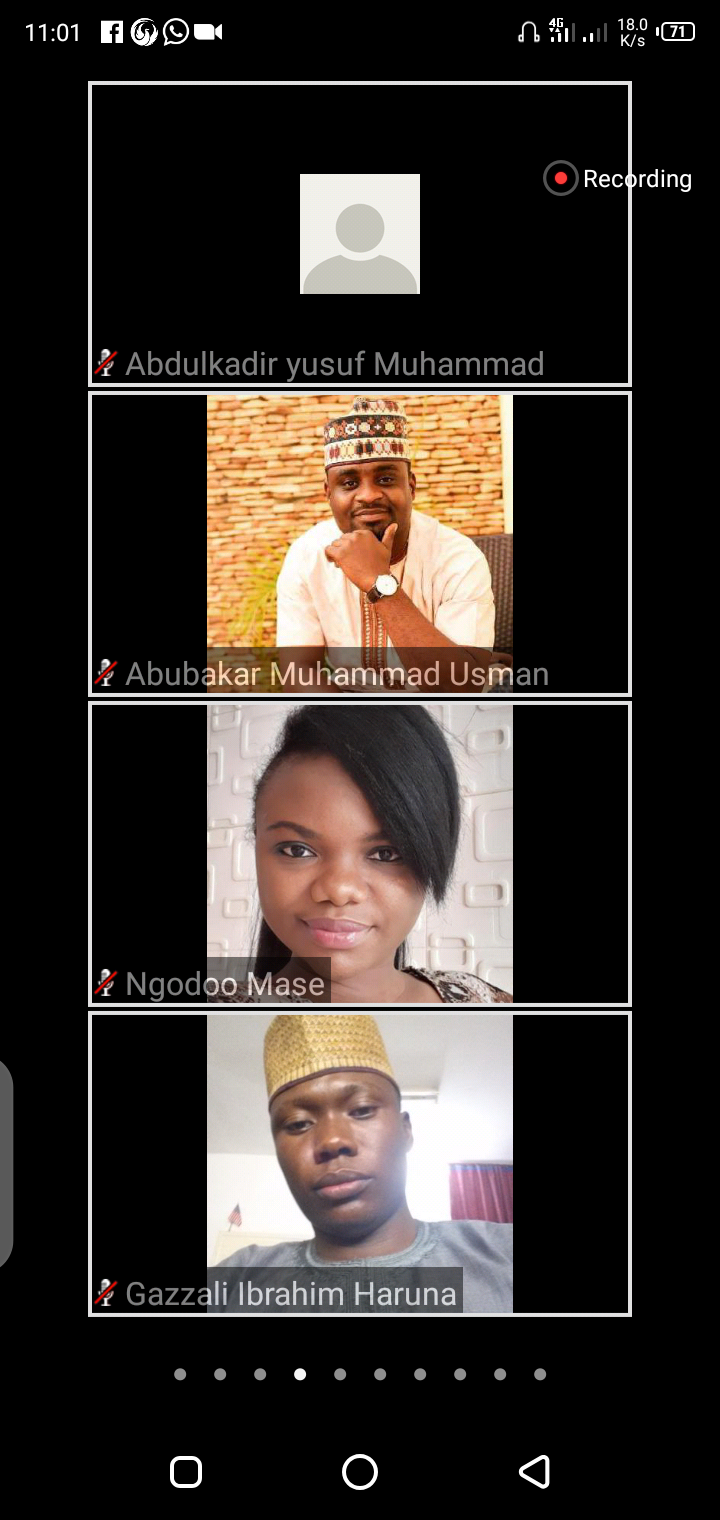
10 Day Youth Leadership Training on Covid19 Organized by Centre For Information Technology and Development with Support From International Institute of Education and MacArthur Foundation Held Between The 17-28th, July, 2020
In its efforts to help in curtailing the spread of the deadly coronavirus in Nigeria, the Centre for Information Technology and Development (CITAD) with support from MacArthur Foundation in partnership with International Institute of Education (IEE) trained 100 Youth in Kano state. The Training which was tagged as Youth Leadership Training on Covi19 was conducted online via Zoom Platform from the 17th of July to 28th of July 2020. The objectives of the training were:
- To enhance the understanding of the participants of COVID-19 and how it can be curtailed
- To provide tools with which participants will support community efforts in their community to prevent spread of the virus
- To enable youth provide leadership in situation of emergency in their community
- To encourage the participants, carry out sensitization efforts in their community using social media
The participants of the program who were selected from different communities based on the criteria set up by CITAD, after receiving many applications from interested candidates. The trained youth are expected to carry out awareness activities on Covid19 in their respective communities.
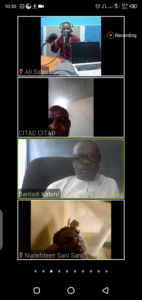 However, the program carefully selected participants who have visibility on social media; Twitter, Facebooks, Instagram etc. so that issues around covid19 in their communities will be escalated on such platforms to attract the attention of the appropriate authorities and members of their communities. During the training emphasis were made on the area of behavior change which will help in changing the negative perspective many people have on the virus in the state. On the first session of the training Dr. (Pharmacist) Khalid Garba Muhammad of the Department of Pharmaceutical Technology, Bayero University, Kano took the participants: Understanding COVID-19, Key Symptoms and Asymptomatic Infection, Mode of Transmission and Severity and Interventions to stop COVID-19 spread on the first day of the training. While on the second day he continued with Individual Measures to keep safe and Limit Transmission; COVID-19 Care and Management and concluded with Psychological and Mental Health Impact and Strategies to Manage them.
However, the program carefully selected participants who have visibility on social media; Twitter, Facebooks, Instagram etc. so that issues around covid19 in their communities will be escalated on such platforms to attract the attention of the appropriate authorities and members of their communities. During the training emphasis were made on the area of behavior change which will help in changing the negative perspective many people have on the virus in the state. On the first session of the training Dr. (Pharmacist) Khalid Garba Muhammad of the Department of Pharmaceutical Technology, Bayero University, Kano took the participants: Understanding COVID-19, Key Symptoms and Asymptomatic Infection, Mode of Transmission and Severity and Interventions to stop COVID-19 spread on the first day of the training. While on the second day he continued with Individual Measures to keep safe and Limit Transmission; COVID-19 Care and Management and concluded with Psychological and Mental Health Impact and Strategies to Manage them.
The second module of the training was facilitated by Kabiru Danladi Lawanti of the Department of Mass Communication, Ahmadu Bello University, Zaria. The focused of his presentations in the first day were on Meaning and Types of Social Media, Use of Social Media to pass Message. In the second day of his session, Mr. Kabiru taught the participants how to create groups on Social Media and how to moderate such Groups. On the final day of his sessions, Mr. Lawanti focused on Monitoring and getting feedback. The third component of the course which commenced on the seventh day of the program, was on community mobilization. This was taken by Mukhtar Halilu Modibbo, Community Engagement Officer at Connected development (CODE) who discussed on Community Mobilization and Identifying and Implementing Community Mobilization Activities in the first day. The objective was on how to mobilize, persuade and spread their messages in their respective communities. On the second day of his session, he discussed on the concept of Community and Influencer, and Identifying Community Influencer. Maryam Ado Haruna who is the head of JobberMan Partnership Program at CITAD discussed with the participants how to write a good CV/Resume, cover Letter, how to attend an Interview and what to avoid in writing CV/Resume. This addition stemmed from the observation that many of the participants did not know how to prepare their CV as analyzed during the selection process.
 On the final day of the training, Malam Y.Z Ya’u, the Executive Director of CITAD conducted a session on proposal writing as well how the participants could Pitch their proposals since CITAD had informed them that those who pitch very good proposal would be given micro grant. He took the participants on how to write a good proposal. However not all are to get the micro grant as they are limited and would be awarded on competitive basis. He also discussed guidelines and rules for the competition.
On the final day of the training, Malam Y.Z Ya’u, the Executive Director of CITAD conducted a session on proposal writing as well how the participants could Pitch their proposals since CITAD had informed them that those who pitch very good proposal would be given micro grant. He took the participants on how to write a good proposal. However not all are to get the micro grant as they are limited and would be awarded on competitive basis. He also discussed guidelines and rules for the competition.
At the end of every class, exercises were given to the participants to test the level of their understanding, commitment and focus during the training. Also, during the training, attendance was made part of the requirements before a participant is issued a certificate. An evaluation questionnaire was served to get feedback from them.
SUCCESS STORIES
Narrating their experiences after the training, one of the participants, Hussaini Yunusa said before this training he and his friends didn’t believe Covid19 is real but with the training he came to realized that indeed covid19 is real and it exists. This made him to inform his friends about the Youth Leadership Training on Covid19 which is aim to train young people that will go back and sensitize their communities and what is being discussed at the training, Malam Husain said in the course of the conversation he was able to convince a handful number of people at the spot about the reality of the virus and it existence and he promise to continue enlightening his community members about the disease, WhatsApp Group, YLTCOVID19@CITAD, 22nd July, 2020. Another participant, Amina Alhassan narrated that with knowledge she acquired from the training she was able to change the perception of some women on covid19 she met on Adaidaita Sahu, according to her one of the women was discussing on how government is using the disease to get money from foreign countries while the other woman was saying that she has never seen a picture of a person that is infected by the virus or knows someone that seen the picture. According to them it is only government that is manufacturing the numbers in order to scare people and get money. Amina Alhassan seized the opportunity and used the knowledge she gets from the training and lectured the women on why the disease is real, she started by telling them that many have actually contracted the virus as against what people are saying and in many instances people can have the virus especially youth without showing any sign but they can infect others. She went further to discussed with them the importance of wearing face marks, washing hands regularly and maintaining social distancing, WhatsApp Group, YLTCOVID19@CITAD, 22nd July, 2020.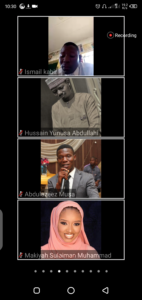
On her part, Amina Sani, another participant of the training narrated that she actually didn’t believe in wearing the face marks neither observing social distancing and she didn’t see any importance of doing that, but when she attended the training her perception is totally changed and now she wears it wherever she goes and avoided crowd places, she continued to state that she was at an ATM machine with her face mark and observing social distancing but the people there were laughing at her, telling her that COVID19 is a hoax but that didn’t discourage her and promise to spread the knowledge she gets, WhatsApp Group, YLTCOVID19@CITAD, 22nd July, 2020. On her part, Amina Musa declared that before the training she thought the coronavirus pandemic was over despite she being part of the most vulnerable ones to the virus, Amina continued to state that she for long not in the habit of wearing face marks or observing social distancing, but after participating at the training she fully understood the importance of wearing and observing social distancing YLTCOVID19@CITAD, 22nd July, 2020.
Sadik Abdurrahman believed that if there were organizations like CITAD who are sensitizing public and enlightening them about the dangers of Covid19 and how real it was just like the way HIV and Hepatitis are being discussed, the disease will easily be controlled in the society, WhatsApp Group, YLTCOVID19@CITAD, 27th July, 2020. Also, participants like Abubakar Salisu YLTCOVID19@CITAD, 23rd July, 2020, and Abdullahi Abdurrahman have already started designing fliers containing messages on how to prevent the spread of Covid19, what covid19 is all about and started sharing them on social media, this they pledge to continue doing in order to enlighten the general public and help in kicking out the virus from Kano state (https://web.facebook.com/abdullahi.abdurrahman.5/posts/1732868613519105.
Moreover, some participants like Abdurrahman Iguda (https://twitter.com/AIguda/status/1288547082421317639 https://twitter.com/AIguda/status/1286781030540685313) and Abubakar Muhammad Usman (https://m.facebook.com/story.php?story_fbid=3108487392534026&id=100001183888918Â https://m.facebook.com/story.php?story_fbid=3084335118282587&id=100001183888918
https://m.facebook.com/story.php?story_fbid=3083789558337143&id=100001183888918) on their part promised to focus their postings on social media like Facebook and twitter on the dangers of covid19, how it is being transmitted and what people need to do to protect themselves from contracting the virus. On his part, Ismail Auwal, said with the knowledge he acquired during the training he will go back to his community and sensitize his people especially Islamiyya schools on the dangers of the virus and how it would be curtailed, Zoom Meeting, 28th July, 2020. While Adamu Umar said the sessions of Creating Groups on Social Media, Monitoring and Getting Feedback had helped him to sensitize his community members on Covid19 Pandemic, YLTCOVID19@CITAD WhatsApp Group, 22nd July, 2020.

